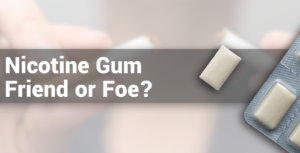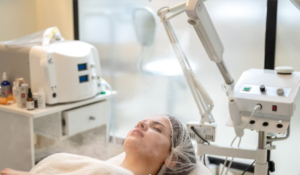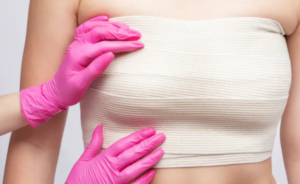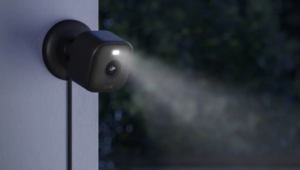How to Take a Holistic Approach to Hair Loss
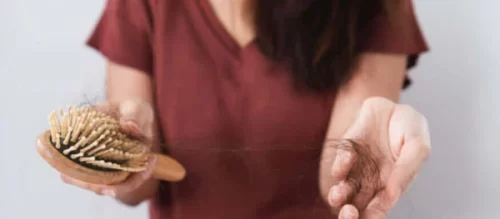
How to Take a Holistic Approach to Hair Loss
Hair loss is an extremely prevalent condition that affects millions of people worldwide. One of the most common causes is genetics, as it’s a trait that passes down within families. While there’s not much you can do to completely stop genetic hair loss, there are other factors that could worsen the condition. Because of this, it’s a great idea to take a holistic approach to treatment.
Holistic medicine addresses the person as a whole, not just their symptoms. This involves looking into possible underlying causes or environmental factors and how they could combine to create a condition. Given the many things that contribute to hair loss, adopting a holistic attitude could be the key to combating it effectively. Keep reading for some suggestions on how to go about employing this method.
1. Use Medication That Targets the Source
There are a number of hair loss medications on the market. Two of the most effective target specific causes, namely hormonal imbalances and problems with hair follicle health. These are finasteride and minoxidil, respectively.
Finasteride
Also known by the brand name Propecia, this drug works by blocking the overproduction of the hormone dihydrotestosterone. When the body has too much DHT, the hormone tends to cling around hair follicles. This makes the follicles shrink and become weak, leading to hair loss. You can take finasteride as a pill or apply it as a gel; users can often see growth within four to six months.
Minoxidil
Made popular as the active ingredient in Rogaine, minoxidil is a follicular stimulant. Used as a topical gel or shampoo, this medicine will spur follicles into growing more hair. This is most widely used for conditions like telogen effluvium, in which the follicles shut down and stop producing hair. As with finasteride, many minoxidil users report noticeable growth within four to six months.
2. Increase Your Intake of Vitamins and Minerals
Many ailments can be brought upon or exacerbated by a poor diet, and this is applicable to hair loss. Conditions like anemia, which can be caused by an iron deficiency, also put a strain on hair follicle health. It’s important to maintain a nutritious, balanced diet to improve your overall wellness. However, you can also focus on increasing your intake of certain nutrients directly related to hair health.
Biotin
Also known as vitamin B7, biotin is perhaps one of the most important vitamins for your hair. As a protein-builder, this nutrient is required to create keratin — a protein that makes up hair and nail cells. Without enough biotin, hair production can slow, and strands can even fall out. Many people who take biotin supplements report healthier, stronger hair that grows more quickly. You can get this vitamin as a supplement, such as gummies or pills, or by eating more eggs, avocados, and nuts.
Vitamin C
Your immune system is heavily interconnected with your hair health. Having weak immunity can diminish follicular health, causing hair to fall out. Therefore, it’s important to boost your overall health by increasing your intake of vitamin C. This nutrient strengthens the immune system and fights free radicals, which can also cause hair loss. You can get more vitamin C as a supplement or by consuming citrus fruits and juices.
3. Consider Environmental Factors
There are other factors besides diet, genes, and hormones that can affect hair health. It’s not always what you put in your body that can do damage, but also what’s around you. To help mitigate hair loss, you should also address these known environmental causes of the condition.
Stress
Health professionals have long known that a person’s mental health can heavily impact their physical health. The body can be easily thrown off balance by an abundance of stress, and one area that’s commonly affected is the hair. Experiencing lots of stress can cause follicles to become weak and slow or stop hair production, then hair falls out. Reducing stressors in your life can help you hang onto your tresses. Try to incorporate more time for relaxation or doing activities that you enjoy.
Smoking
Smoking is known to be incredibly harmful to the respiratory system, but did you know it can cause hair loss, too? Even if you don’t smoke yourself, being exposed to an abundance of secondhand smoke can have an impact. Tobacco smoke can increase the production of free radicals, reduce blood flow to follicles, and inflame the scalp. All of these will result in damaged hair follicles that become weak, leading to hair loss. Therefore, limit your exposure to cigarette smoke, and if you do smoke, consider quitting for your overall health.
Hairstyling
The way you take care of your hair can also lead to damage or loss, especially when it comes to hairstyling. Tight, pulled-back styles can tug on the scalp, putting stress on the follicles that results in weakness and hair loss. Using heat on your hair, such as curling irons or a blow dryer, can also severely hurt your hair’s health. Give your hair a break from heat and tight hairstyles, and replenish moisture and vitamins with serums.
Don’t Treat the Symptom — Treat Yourself
When it comes to taking better care of your hair, don’t forget the rest of your body in the process. When you nurture your body as a whole, multiple functions can improve and the severity of conditions can be lessened. And since a number of factors can contribute to hair loss, utilizing a holistic method to treat it is your best bet.

